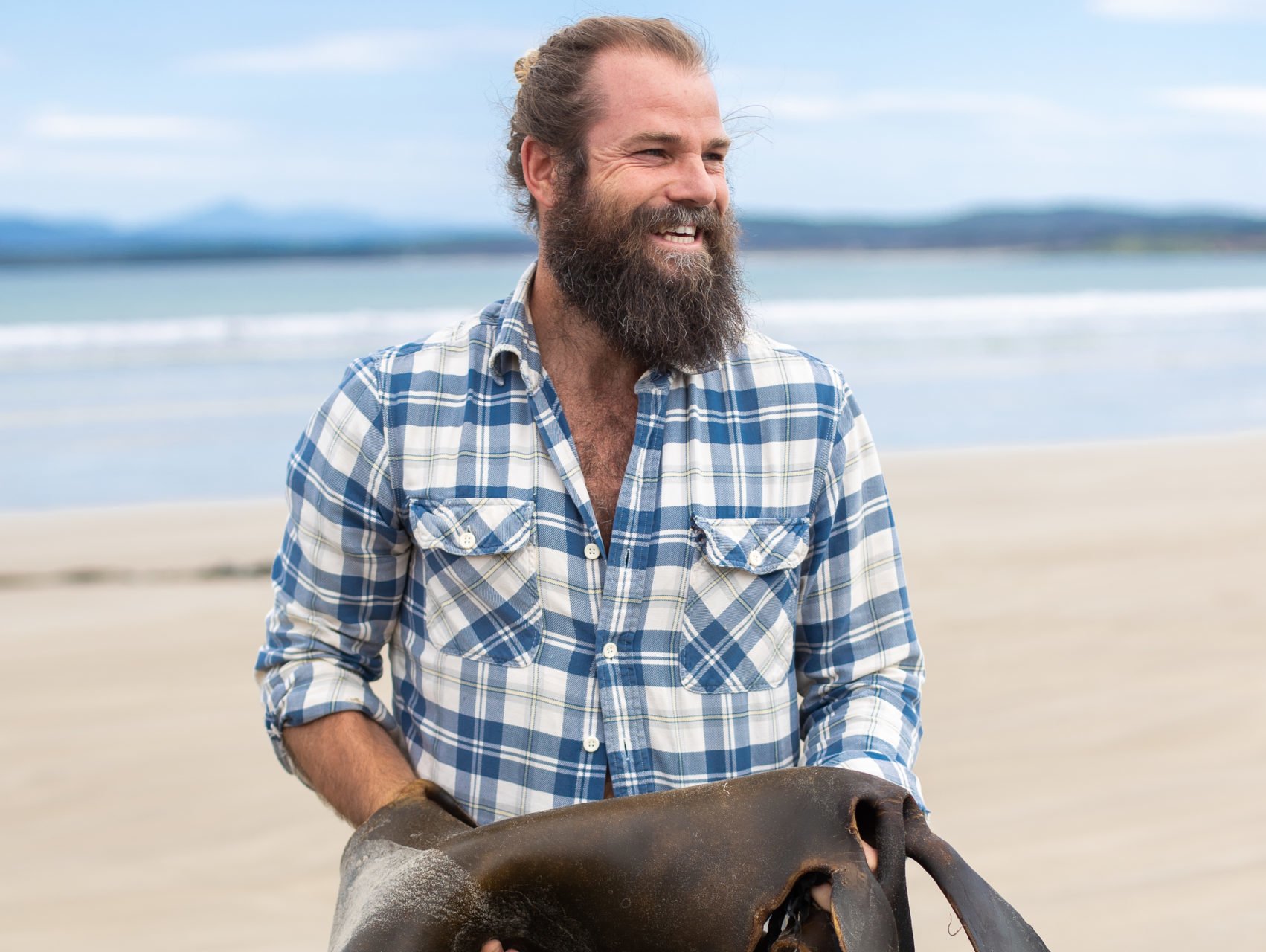A Tasmanian startup pioneering the commercial production of a seaweed that has the potential to dramatically cuts methane emissions from livestock has won the Ocean Impact Pitchfest 2021.
Sea Forest impressed the judges from among more than 200 applications from 45 countries.
The runner up is Saathi, an Indian startup improving the lives and livelihoods of women and farmers with healthy, biodegradable and accessible sanitary pads created from banana tree waste – greatly reducing pollution and promoting a circular economy. The second runner up is Great Wrap, a Sydney startup creating compostable cling wrap from food waste with the goal of making the in-demand product ocean friendly by being completely marine biodegradable.
The Winner of the HP Generation Impact Incubator is Emile Theau, a nanotechnology engineer and co-founder of Sine Surf, which has developed patented technology to create sustainable surfboards using wood, resulting in a twelth of the plastic waste of conventional surfboards.
The first Runner Up of Generation Impact was Sian Murray, a digital marketing specialist and co-founder of Pleasant State, which is on a mission to reduce plastic waste and promote the reuse economy with refillable, accessible and ocean friendly cleaning product solutions.
The second Runner Up of Generation Impact was Curtis Sciacca, co-founder of Nurtured.Co, which aims to restore and rejuvenate coral reefs worldwide by using new age technologies that enhance artificial reef growth.
It’s the second year Sydney-based Ocean Impact Organisation (OIO) has held the The Ocean Impact Pitchfest to support and accelerate the best startups working to transform ocean health globally.
With a total cash prize pool in excess of $150,000 and another $150,000 in product and support packages.
OIO co-founder and CEO Nick Chiarelli said the quantity and quality of startups and entrepreneurs in the 2021 competition filled him with optimism.
“Applicants to Pitchfest 2021 have raised a total of almost US$350 million of investment capital vs US$65m in Pitchfest 2020,” he said.
This is a solid increase, but we need much more support and capital if we’re to successfully transform ocean health. Along with our partners around the world we’ll keep working hard to make sure that passionate ocean impact founders get the support and funding that they need to accelerate their impact”.
The competition also included four Spotlight Awards for solutions addressing key ocean challenges.
The Sustainable Ocean Harvesting Spotlight Award went to nextProtein from France, which developed insect-based protein products from food waste to help feed the future.
The Ocean Monitoring Spotlight Award was awarded to Firetail Robotics from Australia who develop innovative artificial intelligence technology to help monitor fish populations.
The Plastic Pollution Spotlight Award went to Saathi and the Climate Spotlight Award funded by OIO’s philanthropic community went to Sea Forest.
Sea Forest is growing asparagopsis seaweed, which, when fed in small quantities to livestock, can reduce methane emissions by 90%.
Last year, FutureFeed, a startup, spun out of the CSIRO to commercialise the seaweed-based additive to livestock feed in order reduce methane emissions, raised $13 million in backing from five of the biggest names in agriculture.
Sea Forest co-founder and CEO Sam Elsom said it was a great honour to win The Ocean Impact Pitchfest.
“Our goal has always been to make rapid progress and meaningful impact on climate change through emissions reduction,” he said.
“We have a long way to go but the support provided to the company through Ocean Impact Organisation will assist in driving Sea Forest to scale its IP in science and engineering to deliver a sustainable seaweed aquaculture industry, regional employment and educational opportunities and positive environmental outcomes for Planet Ocean”.
In April this year, Sea Forest announced it had raised $34 million to build out its 1800-hectare marine lease at Triabunna, in Spring Bay.
The venture is building a land-based seaweed farm and processing facility, producing around 7,000 tonnes of seaweed annually, cutting an estimate 400,000 tonnes of livestock emissions.
More on the awards here.
NOW READ




















Trending
Daily startup news and insights, delivered to your inbox.